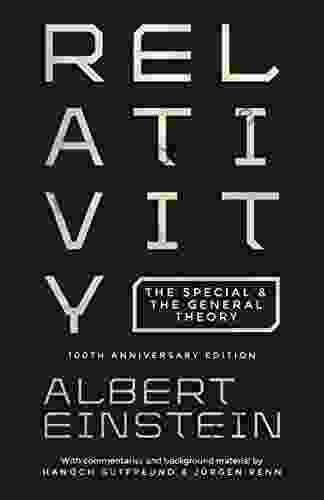The Irony of Democracy: A Critical Examination of the Contradictions Inherent in a System of Rule by the People

4.1 out of 5
| Language | : | English |
| File size | : | 19354 KB |
| Screen Reader | : | Supported |
| Print length | : | 432 pages |
| X-Ray for textbooks | : | Enabled |
Democracy, a term derived from the Greek words "demos" (people) and "kratos" (power),embodies the ideal of a system of government in which the people hold the ultimate authority. It is a system that has been celebrated for its ability to empower citizens, promote equality, and uphold individual rights. However, a deeper examination of democratic systems reveals a complex and often paradoxical reality. In this article, we will explore the irony of democracy, focusing on the contradictions that arise between its theoretical principles and practical implementations.
The Tyranny of the Majority
One of the most fundamental contradictions in democracy is the tension between majority rule and minority rights. In a democratic system, decisions are typically made based on the will of the majority. While this principle ensures that the interests of the greatest number of people are taken into account, it also raises concerns about the potential for tyranny by the majority. The tyranny of the majority occurs when the rights and interests of minority groups are disregarded or suppressed in the name of majority rule.
Throughout history, numerous examples can be found of the tyranny of the majority. In ancient Athens, the practice of ostracism allowed the majority of citizens to vote to exile an individual for a period of ten years, often for political reasons. In the United States, the infamous Dred Scott decision of 1857, in which the Supreme Court ruled that African Americans were not citizens and could not sue in federal court, is a glaring example of the tyranny of the majority.
The Challenges of Collective Decision-Making
Another irony of democracy lies in the challenges associated with collective decision-making. In a democratic system, decisions are typically reached through processes of deliberation, debate, and compromise. While these processes can lead to well-informed and inclusive decisions, they can also be slow, inefficient, and susceptible to manipulation.
The slow pace of democratic decision-making can be a significant obstacle, especially in times of crisis or when prompt action is required. The need for consensus or supermajorities in certain decision-making bodies can further exacerbate this problem. Additionally, the complexity of issues and the diversity of perspectives within a democratic society can make it difficult to reach consensus on matters of public policy.
The Potential for Manipulation and Inequality
A further irony of democracy is the potential for manipulation and inequality. In a democratic system, citizens are expected to participate in the political process through voting, running for office, and engaging in public discourse. However, not all citizens have equal access to these opportunities. Factors such as poverty, education, race, and gender can create barriers to political participation, leading to the underrepresentation of certain groups in decision-making processes.
Moreover, the influence of money in politics is a growing concern in democratic societies. Wealthy individuals and corporations can use their resources to influence elections, lobby for favorable policies, and shape public opinion. This can lead to the erosion of democratic principles and the perpetuation of inequality.
Historical Examples of Democratic Irony
History provides numerous examples of the ironic and contradictory nature of democracy. The Athenian democracy, often hailed as the birthplace of democracy, was marred by the practice of ostracism and the exclusion of women and slaves from political participation. The American Revolution, fought in the name of liberty and self-governance, led to the establishment of a system that initially denied voting rights to women and African Americans.
In the 20th century, the rise of totalitarian regimes in the Soviet Union, Nazi Germany, and elsewhere demonstrated the fragility of democratic institutions. These regimes used the guise of democracy to gain power and then systematically dismantled democratic principles and freedoms.
Contemporary Challenges to Democracy
In the 21st century, democracy faces new and evolving challenges. The rise of populism, nationalism, and authoritarianism threatens the foundations of democratic societies. These movements often exploit public discontent with the perceived failures of democracy and offer simplistic solutions that undermine democratic institutions and values.
The proliferation of misinformation and disinformation on social media is another major challenge to democracy. False or misleading information can spread rapidly and influence public opinion, making it difficult for citizens to make informed decisions. This can erode trust in democratic institutions and undermine the legitimacy of democratic processes.
The irony of democracy lies in the gap between its theoretical principles and practical realities. Democracy is a system of government that promises to empower citizens, promote equality, and uphold individual rights. However, it is also a system that can be susceptible to tyranny by the majority, challenges of collective decision-making, manipulation by powerful interests, and the marginalization of minority groups.
Recognizing the ironies inherent in democracy is essential for understanding its complexities and potential pitfalls. By acknowledging these contradictions, we can work to strengthen democratic institutions, promote inclusiveness, and ensure that the principles of democracy are truly realized in practice. Democracy is an ongoing experiment in self-governance, and it is up to each generation to navigate its ironies and contradictions in order to create a more just, equitable, and participatory society.
4.1 out of 5
| Language | : | English |
| File size | : | 19354 KB |
| Screen Reader | : | Supported |
| Print length | : | 432 pages |
| X-Ray for textbooks | : | Enabled |
Do you want to contribute by writing guest posts on this blog?
Please contact us and send us a resume of previous articles that you have written.
 Fiction
Fiction Non Fiction
Non Fiction Romance
Romance Mystery
Mystery Thriller
Thriller SciFi
SciFi Fantasy
Fantasy Horror
Horror Biography
Biography Selfhelp
Selfhelp Business
Business History
History Classics
Classics Poetry
Poetry Childrens
Childrens Young Adult
Young Adult Educational
Educational Cooking
Cooking Travel
Travel Lifestyle
Lifestyle Spirituality
Spirituality Health
Health Fitness
Fitness Technology
Technology Science
Science Arts
Arts Crafts
Crafts DIY
DIY Gardening
Gardening Petcare
Petcare Celeste Headlee
Celeste Headlee Aidan Chambers
Aidan Chambers Carla Schroder
Carla Schroder Christopher Hellman
Christopher Hellman Vasilis Konstantinos Giontzis
Vasilis Konstantinos Giontzis Arnold Haultain
Arnold Haultain Mark Goulston
Mark Goulston Helena Clare
Helena Clare 12th Edition Kindle Edition
12th Edition Kindle Edition Tonya Johnston
Tonya Johnston Theodore P Jorgensen
Theodore P Jorgensen Anna Hickey Moody
Anna Hickey Moody Beata Bliss Lewis Md
Beata Bliss Lewis Md Alan Margot
Alan Margot Harriet Brown
Harriet Brown Ai Publishing
Ai Publishing Jordon Greene
Jordon Greene Dorothy H Crawford
Dorothy H Crawford Al Desetta M A
Al Desetta M A Vishwesh Bhatt
Vishwesh Bhatt Andrew Rowe
Andrew Rowe Robert M Emerson
Robert M Emerson Alan R Hall
Alan R Hall Tom Shachtman
Tom Shachtman Zita West
Zita West Rose Lynn Fisher
Rose Lynn Fisher Alan Graham
Alan Graham Alan E Kazdin
Alan E Kazdin David Jason
David Jason Teresa Mccallum
Teresa Mccallum Gary B Ferngren
Gary B Ferngren Dr Joseph Parent
Dr Joseph Parent Akwaeke Emezi
Akwaeke Emezi Mary Basick
Mary Basick Lisa Newton
Lisa Newton Francesca Lia Block
Francesca Lia Block Suze Guillaume
Suze Guillaume Bettina Gordon Wayne
Bettina Gordon Wayne Caitlin Zaloom
Caitlin Zaloom Douglas G Altman
Douglas G Altman Morgan Lyle
Morgan Lyle Christopher Scordo
Christopher Scordo Jill Homer
Jill Homer Elaine Howard Ecklund
Elaine Howard Ecklund David Vine
David Vine E Cheng
E Cheng Roy Dittmann
Roy Dittmann Dylan Alcott
Dylan Alcott Thubten Chodron
Thubten Chodron The Rogue Hypnotist
The Rogue Hypnotist Gary Smith
Gary Smith David Roberts
David Roberts Douglas T Hall
Douglas T Hall Satya Sundar Sethy
Satya Sundar Sethy Gordon H Orians
Gordon H Orians Alan Watts
Alan Watts Al Roker
Al Roker Hammad Fozi
Hammad Fozi Clyde Fitch
Clyde Fitch Michael D Rich
Michael D Rich Megan Gray Md
Megan Gray Md Al Barkow
Al Barkow Nicholas Romanov
Nicholas Romanov Nassim Nicholas Taleb
Nassim Nicholas Taleb Andrew Jamieson
Andrew Jamieson Jane Poynter
Jane Poynter Spencer Wells
Spencer Wells S A Klopfenstein
S A Klopfenstein Donna Morang
Donna Morang Micky Ward
Micky Ward Michael Casey
Michael Casey Percy Boomer
Percy Boomer Pantea Kalhor
Pantea Kalhor Kevin Williams
Kevin Williams Aidan Dodson
Aidan Dodson John Leo
John Leo Alan E Sparks
Alan E Sparks Emily Harris Adams
Emily Harris Adams Kiku Hughes
Kiku Hughes Roxy And Ben Dawson
Roxy And Ben Dawson Erin Lovelace
Erin Lovelace Graham Bower
Graham Bower S Connolly
S Connolly Peter Irvine
Peter Irvine Linda Welters
Linda Welters Juno Roche
Juno Roche Lingo Mastery
Lingo Mastery Ron L Deal
Ron L Deal Habeeb Quadri
Habeeb Quadri Don Casey
Don Casey Tenth Edition Revised Kindle Edition
Tenth Edition Revised Kindle Edition Andrea Travillian
Andrea Travillian Miles Mckenna
Miles Mckenna Aileen Nielsen
Aileen Nielsen Joe Clement
Joe Clement Josh Kilmer Purcell
Josh Kilmer Purcell Helen Hollick
Helen Hollick Katharine Graves
Katharine Graves Michael Freedland
Michael Freedland Robin Mckinley
Robin Mckinley Christopher Gavigan
Christopher Gavigan Lj Andrews
Lj Andrews Rob Casey
Rob Casey Mark Booth
Mark Booth Brian Mills
Brian Mills Lee Carroll
Lee Carroll Betsy Tobin
Betsy Tobin Hiro Ainana
Hiro Ainana Bobby Flay
Bobby Flay Edupan7 Publishing
Edupan7 Publishing Lo Bosworth
Lo Bosworth Karen Levin Coburn
Karen Levin Coburn Jan Smith
Jan Smith Tina Dreffin
Tina Dreffin Ilan Dvir
Ilan Dvir Robert A Sadowski
Robert A Sadowski Molly Absolon
Molly Absolon Jay Revell
Jay Revell Al Pasha
Al Pasha Charlotte Markey
Charlotte Markey George M Fredrickson
George M Fredrickson Michael Sidgwick
Michael Sidgwick Ken Denmead
Ken Denmead Paul G Schempp
Paul G Schempp Chris Bowers
Chris Bowers Mykel Hawke
Mykel Hawke Janice Selekman
Janice Selekman Aileen Evans
Aileen Evans Martin J Pring
Martin J Pring John T Hansen
John T Hansen Matthew Sturm
Matthew Sturm Grace Lebow
Grace Lebow Leigh Sales
Leigh Sales Alan S Kaufman
Alan S Kaufman Julie Bradley
Julie Bradley Jackson Katz
Jackson Katz Sandy Lindsey
Sandy Lindsey Deitra Leonard Lowdermilk
Deitra Leonard Lowdermilk Michal Stawicki
Michal Stawicki J Zoltan
J Zoltan Jill Stamm
Jill Stamm Damon Lee
Damon Lee Steven Trimble
Steven Trimble Aileen Erin
Aileen Erin Kai Nacke
Kai Nacke E A Koetting
E A Koetting Alan Murchison
Alan Murchison Penney Peirce
Penney Peirce Larry Wasserman
Larry Wasserman Belinda Luscombe
Belinda Luscombe Louis Schubert
Louis Schubert Courtney Macavinta
Courtney Macavinta Joe Berardi
Joe Berardi David A Sousa
David A Sousa Nick Hughes
Nick Hughes Antipodean Writer
Antipodean Writer R A Salvatore
R A Salvatore Laurie Pickard
Laurie Pickard James A Michener
James A Michener Massad Ayoob
Massad Ayoob Natazha Raine O Connor
Natazha Raine O Connor Al Marlowe
Al Marlowe Martin Luther King Jr
Martin Luther King Jr Constance Classen
Constance Classen Jonathan Gottschall
Jonathan Gottschall Will Storr
Will Storr Akil Palanisamy
Akil Palanisamy Michael Domican
Michael Domican Amye Archer
Amye Archer Andre Agassi
Andre Agassi Erin Ekins
Erin Ekins Lauren Blackwood
Lauren Blackwood Elizabeth Thompson
Elizabeth Thompson Anne Enright
Anne Enright Gary Player
Gary Player Jane Bottomley
Jane Bottomley Peg Tyre
Peg Tyre Alan Lawrence Sitomer
Alan Lawrence Sitomer Contractor Education Inc
Contractor Education Inc Marc M Triola
Marc M Triola Alan Rouse
Alan Rouse Angelina Wilson
Angelina Wilson Harold Klemp
Harold Klemp Richard Pears
Richard Pears Farlex International
Farlex International Aja Raden
Aja Raden Amelia Simmons
Amelia Simmons Robert Macfarlane
Robert Macfarlane Magnus Thollander
Magnus Thollander Douglas Noll
Douglas Noll George E Andrews
George E Andrews Stephen Wolfram
Stephen Wolfram Jeremy Miles
Jeremy Miles Howard Greene
Howard Greene James F Boswell
James F Boswell Frances E Jensen
Frances E Jensen Trevor Lund
Trevor Lund Emeran Mayer
Emeran Mayer Dimitri Loose
Dimitri Loose Jacqueline Fitzpatrick
Jacqueline Fitzpatrick Barbara Oehlberg
Barbara Oehlberg Pallas Snider
Pallas Snider Alan Hearnshaw
Alan Hearnshaw Dan Dipiro
Dan Dipiro Gary R Varner
Gary R Varner Carl Gustav Jung
Carl Gustav Jung Arthur Fleischmann
Arthur Fleischmann Bradley Efron
Bradley Efron Aidan Comerford
Aidan Comerford Jane P Gardner
Jane P Gardner Patrick O Sullivan
Patrick O Sullivan Rebekah Sack
Rebekah Sack Snap Summaries
Snap Summaries Jack Nicklaus
Jack Nicklaus Jonathan White
Jonathan White Cynthia Clumeck Muchnick
Cynthia Clumeck Muchnick Jay H Lefkowitch
Jay H Lefkowitch Margit Ystanes
Margit Ystanes Gayle Peterson
Gayle Peterson Charles B White
Charles B White Layla Moon
Layla Moon G E R Lloyd
G E R Lloyd United States Government Us Marine Corps
United States Government Us Marine Corps Gavin Francis
Gavin Francis Erica Westly
Erica Westly Nina Lacour
Nina Lacour Dave Heller
Dave Heller Jon Emmett
Jon Emmett Kerry Diamond
Kerry Diamond Dawn Sakamoto Paiva
Dawn Sakamoto Paiva Al Ristori
Al Ristori Melissa Bashardoust
Melissa Bashardoust Sir Edmund Hillary
Sir Edmund Hillary Scott Surovich
Scott Surovich Eden O Neill
Eden O Neill Jon Tyson
Jon Tyson Sam J Fires
Sam J Fires Chris Vines
Chris Vines Margaret J Wheatley
Margaret J Wheatley Leif K Karlsen
Leif K Karlsen John Riley
John Riley Sophia Joy
Sophia Joy Brandy Roon
Brandy Roon Samuel Carbaugh
Samuel Carbaugh Kate Brian
Kate Brian Mark Harris
Mark Harris Jamie Baulch
Jamie Baulch Terry Breverton
Terry Breverton Donald Woods Winnicott
Donald Woods Winnicott Tod E Bolsinger
Tod E Bolsinger Al Strachan
Al Strachan Collins Easy Learning
Collins Easy Learning Carol Tuttle
Carol Tuttle Joanne Webb
Joanne Webb Shing Tung Yau
Shing Tung Yau Alan Garner
Alan Garner Skeleton Steve
Skeleton Steve Amy Edelstein
Amy Edelstein Ann Hagedorn
Ann Hagedorn John Muir
John Muir Peter Hathaway Capstick
Peter Hathaway Capstick Howard Hill
Howard Hill Ken Schultz
Ken Schultz Gill Rapley
Gill Rapley Amanda Ford
Amanda Ford Michael Morpurgo
Michael Morpurgo George Plimpton
George Plimpton Zondervan
Zondervan Michael W King
Michael W King Albert Einstein
Albert Einstein Jakob Tanner
Jakob Tanner Vernon Coleman
Vernon Coleman Madeline Milne
Madeline Milne Yang Jwing Ming
Yang Jwing Ming Rehana Jawadwala
Rehana Jawadwala Chris Klug
Chris Klug Dr Guy Leschziner
Dr Guy Leschziner Gregory J Davenport
Gregory J Davenport Alan Lightman
Alan Lightman Vera Nazarian
Vera Nazarian Sara Wickham
Sara Wickham Noha Mellor
Noha Mellor John Irving
John Irving Dean Burnett
Dean Burnett Melinda Rushe
Melinda Rushe Toby Wilkinson
Toby Wilkinson Truman Everts
Truman Everts Aitzaz Imtiaz
Aitzaz Imtiaz Steven Horak
Steven Horak Juliet Marillier
Juliet Marillier Marsha Wenig
Marsha Wenig Steve Moore
Steve Moore Kerstin Gier
Kerstin Gier Doug Gelbert
Doug Gelbert Daniel C Okpara
Daniel C Okpara Original Edition Kindle Edition
Original Edition Kindle Edition Bruce Lee
Bruce Lee Judith Garrard
Judith Garrard Alan S Gurman
Alan S Gurman Orson Scott Card
Orson Scott Card Jacqueline Tourville
Jacqueline Tourville Martin Erwig
Martin Erwig Alice Scordato
Alice Scordato Mariam N Ottimofiore
Mariam N Ottimofiore Mark Occhilupo
Mark Occhilupo Al Sweigart
Al Sweigart Rand Cardwell
Rand Cardwell Rene D Zweig
Rene D Zweig Kiersten White
Kiersten White Alana Mclaren
Alana Mclaren Howard Maxwell
Howard Maxwell Jay Speight
Jay Speight Paramahansa Yogananda
Paramahansa Yogananda Aphra Behn
Aphra Behn Benjamin Johnston
Benjamin Johnston Thomas Kurz
Thomas Kurz Al Macy
Al Macy Kardas Publishing
Kardas Publishing Hervey Garrett Smith
Hervey Garrett Smith Linda G Morris
Linda G Morris Alfred S Posamentier
Alfred S Posamentier Jeanne Faulkner
Jeanne Faulkner Olivia Gentile
Olivia Gentile Alan Vermilye
Alan Vermilye Christos A Djonis
Christos A Djonis Steve Michalik
Steve Michalik Kidada Jones
Kidada Jones Denise Alvarado
Denise Alvarado Mackenzi Lee
Mackenzi Lee Conor Daly
Conor Daly Billy Walsh
Billy Walsh Michael Miller
Michael Miller Po Bronson
Po Bronson Dmitry Zinoviev
Dmitry Zinoviev Ainsley Arment
Ainsley Arment Helen Palmer
Helen Palmer Rick Bass
Rick Bass Ged Jenkins Omar
Ged Jenkins Omar Alan Booth
Alan Booth Dr David Geier
Dr David Geier Timm Woods
Timm Woods John H Moore
John H Moore I Johnson
I Johnson Kristine Barnett
Kristine Barnett Anders Halverson
Anders Halverson Jessica Battilana
Jessica Battilana Samuel N Rosenberg
Samuel N Rosenberg Robert L Kelly
Robert L Kelly Aimee Aristotelous
Aimee Aristotelous Gina Guddat
Gina Guddat Anne Dachel
Anne Dachel Lex Croucher
Lex Croucher Wayne Stewart
Wayne Stewart Jay Annelli
Jay Annelli Bob Plott
Bob Plott Alan Gelb
Alan Gelb Janet Houser
Janet Houser George Buehler
George Buehler Kim Stanley Robinson
Kim Stanley Robinson G H Hardy
G H Hardy Daphne Rose Kingma
Daphne Rose Kingma James Willard Schultz
James Willard Schultz Alex Light
Alex Light Dennis Jarecke
Dennis Jarecke Thomas Metzinger
Thomas Metzinger Timothy C Smith
Timothy C Smith Mike Warren
Mike Warren Catherine Belknap
Catherine Belknap John Feinstein
John Feinstein Hope Smith
Hope Smith Bill Parisi
Bill Parisi Joyce Burkhalter Flueckiger
Joyce Burkhalter Flueckiger Mike Martin
Mike Martin Arnold Yates
Arnold Yates David Crabtree
David Crabtree Lexie Scott
Lexie Scott David King
David King Brenda Nathan
Brenda Nathan Cindy Hudson
Cindy Hudson Michael Gray
Michael Gray Franz Metcalf
Franz Metcalf Clint Emerson
Clint Emerson Jessica Cunsolo
Jessica Cunsolo Al Owens
Al Owens Anthonissa Moger
Anthonissa Moger Al Yellon
Al Yellon James Witts
James Witts Bill Walker
Bill Walker Bryon Powell
Bryon Powell Stephen M Camarata
Stephen M Camarata Jacqueline Church Simonds
Jacqueline Church Simonds Martin Rooney
Martin Rooney Gordon R Dickson
Gordon R Dickson Barbara Scott
Barbara Scott Kate Bettison
Kate Bettison Cat Warren
Cat Warren Dave Whitson
Dave Whitson Bruce J Macfadden
Bruce J Macfadden Edward A Tiryakian
Edward A Tiryakian Meredith Marsh
Meredith Marsh Anahad O Connor
Anahad O Connor Matthew Mcbee
Matthew Mcbee Sonia Nazario
Sonia Nazario Terry L Duran
Terry L Duran Susan B Lovejoy
Susan B Lovejoy Vanessa Ogle
Vanessa Ogle M K Hume
M K Hume Robert Heidler
Robert Heidler Ahmed Osman
Ahmed Osman Mike Rothschild
Mike Rothschild Peter Ballingall
Peter Ballingall Robert E Stake
Robert E Stake Celeste Jones
Celeste Jones Kelly Jensen
Kelly Jensen George Monbiot
George Monbiot Sara Hanover
Sara Hanover Joe Bertagna
Joe Bertagna Christopher Willard
Christopher Willard Deborah Harkness
Deborah Harkness Judy Jewell
Judy Jewell Amelia Mayer
Amelia Mayer Matt Mosher
Matt Mosher Jerry Robertson
Jerry Robertson Alan Burdick
Alan Burdick Ndeye Labadens
Ndeye Labadens Takuan Soho
Takuan Soho William Foote Whyte
William Foote Whyte David F Kelly
David F Kelly Alaina Talboy
Alaina Talboy Andy Adams
Andy Adams Nick Lyons
Nick Lyons Alan Porter
Alan Porter Mark Drolsbaugh
Mark Drolsbaugh Gillian Gill
Gillian Gill Pavel Tsatsouline
Pavel Tsatsouline Andrew Blum
Andrew Blum Mista Nove
Mista Nove Sheila Barton
Sheila Barton Terry Funk
Terry Funk Marcus Chown
Marcus Chown Nancy Hughes
Nancy Hughes Nilakantasrinivasan J Neil
Nilakantasrinivasan J Neil Jeff Maynard
Jeff Maynard Jerry Robeson
Jerry Robeson Bob Mayer
Bob Mayer Noel St Clair
Noel St Clair Alan Shipnuck
Alan Shipnuck W E Fairbairn
W E Fairbairn Aiva Books
Aiva Books Esther Parry
Esther Parry Lisa Marasco
Lisa Marasco Eddy Starr Ancinas
Eddy Starr Ancinas James Gleick
James Gleick Dusty Rhodes
Dusty Rhodes Tim Gallagher
Tim Gallagher Isabella Morris
Isabella Morris Shoshana Levin Fox
Shoshana Levin Fox John J Miller
John J Miller Stephanie Izard
Stephanie Izard Frank E Harrell Jr
Frank E Harrell Jr Kevin B Shearer
Kevin B Shearer We Fairbairn
We Fairbairn Bryan Mann
Bryan Mann David D Burns
David D Burns Michael Shermer
Michael Shermer Craig Childs
Craig Childs Rebecca Jones
Rebecca Jones John Bird
John Bird Jenni Hicks
Jenni Hicks Len Sperry
Len Sperry Rosemarie Anderson
Rosemarie Anderson Sarah Hendrickx
Sarah Hendrickx Jessica Cornwell
Jessica Cornwell Publishdrive Edition Kindle Edition
Publishdrive Edition Kindle Edition J R Haseloff
J R Haseloff Letisha Galloway
Letisha Galloway Alice Oseman
Alice Oseman Charles J Thayer
Charles J Thayer Jim Steenburgh
Jim Steenburgh Saul Rip
Saul Rip Markus Rex
Markus Rex Lecile Harris
Lecile Harris George Knudson
George Knudson Mel Thompson
Mel Thompson Florence Williams
Florence Williams Taquetta Baker
Taquetta Baker Princess Her
Princess Her Bianca Smith
Bianca Smith Jacob K Olupona
Jacob K Olupona Alana Chernila
Alana Chernila Lisa Kenney
Lisa Kenney Mendocino Press
Mendocino Press Steven H Strogatz
Steven H Strogatz Alastair Humphreys
Alastair Humphreys William Harding
William Harding Alan C Acock
Alan C Acock Kevin Hunter
Kevin Hunter William A Kaplin
William A Kaplin Shaun Tomson
Shaun Tomson Hannah Ewens
Hannah Ewens Kareem Abdul Jabbar
Kareem Abdul Jabbar Andy Zipser
Andy Zipser Bill Friedrich
Bill Friedrich Gail Tully
Gail Tully
Light bulbAdvertise smarter! Our strategic ad space ensures maximum exposure. Reserve your spot today!
 Cortez ReedFollow ·3.3k
Cortez ReedFollow ·3.3k Christian CarterFollow ·11.9k
Christian CarterFollow ·11.9k Brett SimmonsFollow ·3.6k
Brett SimmonsFollow ·3.6k Devin CoxFollow ·10.3k
Devin CoxFollow ·10.3k E.E. CummingsFollow ·17.5k
E.E. CummingsFollow ·17.5k Ronald SimmonsFollow ·13.9k
Ronald SimmonsFollow ·13.9k Jason HayesFollow ·18.9k
Jason HayesFollow ·18.9k Nikolai GogolFollow ·16.6k
Nikolai GogolFollow ·16.6k

 Deacon Bell
Deacon BellCompilation of Short Stories on Mental Illness and Ways...
Mental illness is a serious issue that affects...

 Jonathan Hayes
Jonathan HayesThe Practical Guide to Raising Courageous and...
As parents, we all want...

 Carlos Fuentes
Carlos FuentesA Journey to Remember: The High Sierra Love Story of...
Prologue: A Wilderness Encounter Beneath...

 Douglas Foster
Douglas FosterEndless Conquest: Embark on an Immersive Dungeon Crawl in...
Endless Conquest is a captivating LitRPG...

 Caleb Long
Caleb LongThe Special and the General Theory 100th Anniversary...
The year 2015 marks a...
4.1 out of 5
| Language | : | English |
| File size | : | 19354 KB |
| Screen Reader | : | Supported |
| Print length | : | 432 pages |
| X-Ray for textbooks | : | Enabled |














